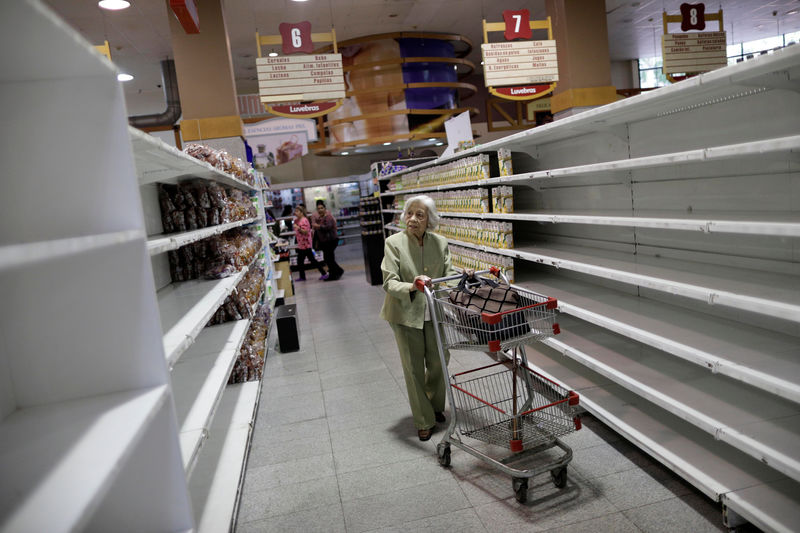By Corina Pons
CARACAS (Reuters) - Venezuela's government has around $2 billion in available cash to make $1.3 billion in bond payments by the end of the year and to cover the import of food and medicine, according to documents reviewed by Reuters.
The funds that could be used for debt payment include $1.3 billion in cash and IMF Special Drawing Rights held in central bank reserves, and $700 million in separate accounts that the central bank lists as "other financial assets," according to a report by local firm Financial Synthesis.
The figures show that Venezuela, which many economists and analysts believe is on the verge of default, has the resources on hand to cover this year's sovereign bond payments.
But making the payments will leave the government of President Nicolas Maduro with minimal hard currency to import basic consumer goods, which may fuel shortages of food and medicine and spur triple-digit inflation.
"The country's financial vulnerability has been exacerbated by the weakness of the central bank's foreign currency assets," wrote economist Tamara Herrera of Financial Synthesis in a research report.
Separately state oil company PDVSA, for the remainder of 2017, faces $3.0 billion in interest and principal payments. PDVSA typically uses its own funds to make debt payments, while sovereign bond payments usually come from central bank coffers.
Maduro says the country, which is struggling under a deep recession as its socialist economy unravels, is the victim of an economic war. He has promised to make all bond payments.
The central bank did not respond to a request for comment on available funds to make debt payments.
International reserves stood at $9.9 billion on Thursday, near a 22-year low.
Most of the country's reserves are tied up in gold that cannot be used in financial transactions without going through a certification process in another country, meaning there is little short-term opportunity to use it for debt payments.
The central bank's financial statements also list "other financial assets" of some $30 billion, which economists say include exotic and illiquid securities that would require complex financial operations to be converted to cash.
These assets include derivative securities called structured notes, promissory notes issued by PDVSA to the central bank, and accounts receivables for oil sold through cooperation agreement Petrocaribe, according to Herrera and a document seen by Reuters.
"The majority of these securities have a market value of zero," Herrera wrote.

Local consultancy Ecoanalitica estimates that the government could raise $2.6 billion through the sale of bonds and treasury notes listed in the central bank's "other financial assets" category.